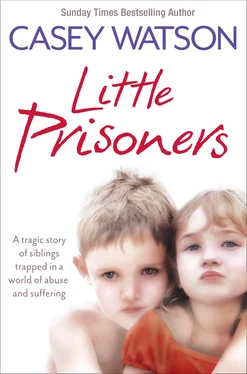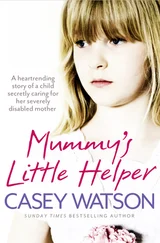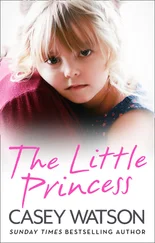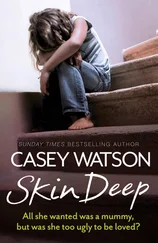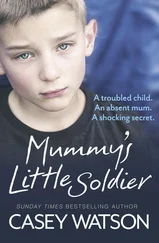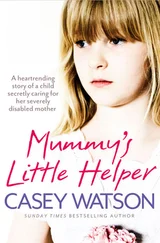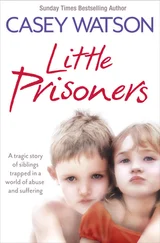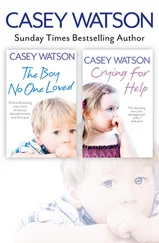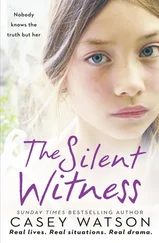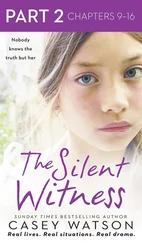The smell hit me next. It was so fetid as to be indescribable, and it was all I could do not to cover my mouth with my hand. You can read Dickens, watch Dickens and visualise his descriptions, but these children, looking every inch like kids from a Dickensian orphanage, smelled bad in a way I’d never before imagined.
But the thing that most struck me, as I smiled my best smile and welcomed them inside, was the head lice they had in their hair. I’d seen lots of head lice, at the school where I used to work. And like most mums, I’d deloused my own from time to time. But these were lice like I’d never seen them before. As I leaned down to give the little girl a welcoming cuddle, it hit me. There were so many, and they were so active, that her hair looked alive. The more you gazed on it, the more you saw what a seething mass it was. A virtual lice-metropolis had established there.
No, I thought, again. The word neglect really didn’t cover it. I glanced at Mike and I knew we were both thinking the same thing. What else were we about to uncover?
Fighting the need to gag, I ushered everyone inside, pasting a smile on my face, leaning down towards the children, and starting with the usual introductions.
‘Now, you must be Olivia,’ I gushed, smiling warmly at the frightened little girl. Like her brother, she had dirty-greyish, straggly blonde hair, and such sad, sunken eyes – two huge blue pools in her pale face. ‘And you’ll be Ashton …’ I went on, smiling at the tousle-headed boy. His hair, I noticed, for all that it was matted around his head, was almost as long as his sister’s. He nodded nervously, as he stepped past me into the hall, his whole demeanour suddenly reminding me of a little boy in a Second World War film who’s just stepped off a train full of frightened evacuees and is determined to maintain a stiff upper lip. ‘You’re very welcome,’ I finished, grinning broadly at them both. ‘Come on,’ I said. ‘Come in. It’s lovely to meet you.’
I straightened again, shocked at how tiny they seemed. So much smaller and younger than the ages ascribed to them. I then turned my attention to the two adults. ‘Nice to meet you both,’ I said, proffering a hand, which, after disentangling themselves from the children, who were still clutching on to them, the man and the woman shook in turn. ‘And this is my husband, Mike,’ I finished. Mike duly did likewise, before saying his own cheerful hellos to the little ones, who visibly shrank back at the sound of his voice.
‘Great to meet you too,’ the female social worker said. ‘I wonder … could the children perhaps go and sit down somewhere? Watch some telly or something? You’d like that, wouldn’t you?’ she added, turning to her two charges. Ashton nodded.
‘Of course,’ I said, ‘Come this way, kids.’ I led them both into the living room and switched on the television, flicking through to find a cartoon channel for them to watch. Mike, meanwhile, I could hear, had led the two adults into the dining room, so we could all have a proper briefing over coffee before they left.
The children sat, huddled close to one another on the edge of the sofa, meekly and silently accepting the drinks of squash and biscuits that I’d already prepared in anticipation of their arrival. They looked I thought, a little like extras from Les Misérables. I tried not to think about their proximity to my soft furnishings. Head lice can’t jump, I reminded myself firmly, as I left them to it and went to join the adults.
Mike was pouring coffees when I walked into the dining room. ‘Here we are, love,’ he said, handing me my one.
The female social worker smiled across as I took my place at the table. ‘I’m Anna,’ she said. ‘We spoke on the phone. And this is Robert,’ she finished. ‘Robert Foster.’ He raised a hand. ‘He’s the family support worker attached to the children.’
Mike, the coffees dealt with, now sat down as well. ‘So,’ he said, ‘what can you tell us about these two?’
‘Not as much as we’d like,’ Anna immediately confessed. ‘I’ve only been working with the family for the last couple of months, you see. The last social worker on the case was involved with the family for six years, or so I’m told, but, regrettably, she’s on long-term sick leave right now, so I’m pretty new to the situation. All I can tell you is that there are three more children – all of them younger; two, three and four, they are – who were removed and found a placement two months back.
‘Five kids!’ Mike exclaimed, voicing my own thoughts. They’d been busy.
Anna nodded. ‘Indeed, but it’s these two, being older than the babies, who are proving problematic for us. Up till now the service has been unable to find anyone willing to take them.’
‘Why were they removed?’ I asked her. ‘I mean, I can see they’ve been neglected, but is that it? Is that the only reason?’
Both Anna and Robert looked slightly uncomfortable at the question, and it was Robert who now stepped in to answer. ‘Mainly,’ he said. ‘Yes, that’s about the size of it.
Gross neglect, quite a number of complaints, from various sources, and the parents, to be frank with you, seem incapable of looking after themselves, let alone five kids. Learning difficulties, both of them. Dad fairly mild but, in the mother’s case, really quite severe. So we’ve been going through the usual channels, of course – there’s a court hearing coming up soonish for a full care order, but as the hearing date’s got closer, and our investigations more frequent – and also more thorough, of course – it’s become increasingly clear that we’d be doing the kids a disservice if we left them with the parents any longer.’
‘But why so sudden?’ Mike asked him. ‘That’s what we don’t understand. Why now as opposed to after the actual hearing. What’s prompted it?’
He was getting to the nub of it. There must be a reason. What had they discovered, bar the lice and the stench and the obvious dishevelment, that would prompt them to take the kids so suddenly?
Anna answered. ‘Like Robert said, the situation’s just deteriorated. And despite several warnings, the mother’s not turned things around. We simply couldn’t leave them, that was all. She’s not been feeding them, washing them, washing their clothes – stuff like that, mainly. And they’ve been eating out of dustbins and stealing food from other children’s lunchboxes in school. We just had to act, basically … well, you’ve seen for yourselves now, of course.’
I glanced towards the living room. ‘Those poor, wretched kids,’ I said. ‘They just look so sad and scared. This must be awful for them.’
‘It has been. It is. It was really traumatic taking them.’ I saw the anguish in her expression and I believed her. This was probably the least edifying part of her job. No, more than that – it must have been grim for her. ‘They were clinging to their mum,’ she said. ‘Screaming at her to stop us. To help them. Really upsetting …’
She tailed off, and I could see it was upsetting her now. ‘So what about their stuff?’ I asked briskly, to change both the tone and the subject. ‘They don’t seem to have much, even by these kinds of standards.’
‘That’s it,’ Anna said. ‘They have nothing. Literally nothing.’ She nodded towards the hall. ‘I helped pack, so I can tell you, there’s nothing of use in there. Couple of sets of disgusting pyjamas, a couple of raggy hoodies and T-shirts – very little else.’
I could feel a wave of sadness wash over the table. Poor, poor children. What desperate straits to be born into.
‘So,’ Mike said, trying, as I had, to lift the tone again, ‘anything else useful you can tell us?
Читать дальше
